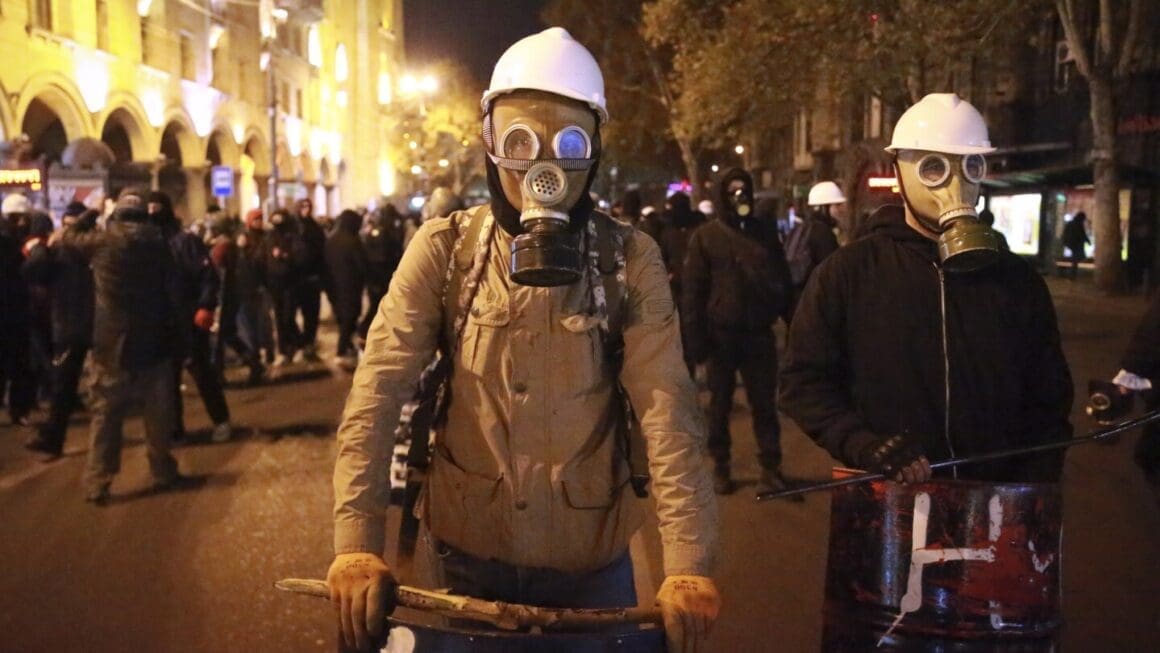Georgian authorities intensified their efforts to curb ongoing mass protests, following a controversial government decision to suspend European Union accession talks.
Riot police in Georgia have been actively dispersing demonstrators in the capital, Tbilisi, using water cannons and tear gas. These measures came in response to protests ignited by the governing party’s decision to halt discussions about joining the European Union. The protests have persisted for six consecutive nights, highlighting the public’s unrest over the government’s actions.
At the heart of these protests is the arrest of Nika Gvaramia, leader of the Coalition for Change opposition party. According to the party, police raided its offices and forcibly detained Gvaramia. This move is perceived by many as an attempt by the government to suppress dissent and maintain its grip on power.
Prime Minister Irakli Kobakhidze, representing the ruling Georgian Dream party, defended the raids, describing them as preventive measures rather than oppression. He argued that the actions were necessary to counteract those allegedly inciting violence during the protests.
The protests erupted after a disputed parliamentary election held on October 26, 2024, which critics claimed was marred by vote rigging, allegedly with Russian influence. The decision to put a hold on EU accession negotiations added fuel to the fire, reflecting the opposition’s broader agenda for a more Western-aligned Georgia.
Georgian President Salome Zourabichvili, whose role is mostly ceremonial, has openly contested the election results and criticized the government’s recent actions. Despite her term nearing its end, she remains committed to leading efforts for a new parliamentary election, and has called on Georgia’s Western allies to apply pressure on the ruling party for its recent clampdown on opposition.
The European Union had previously granted Georgia candidate status under certain conditions, which were subsequently put on hold due to a contentious ‘foreign influence’ law that critics argue undermines democratic freedoms. The law mandates organizations with more than 20% foreign funding to register as entities serving foreign interests, reminiscent of similar Russian statutes used to silence dissent.
PM Kobakhidze, meanwhile, has expressed a willingness to resume EU accession talks, provided that the EU ceases what he terms ‘blackmail.’ This statement underscores the tense diplomatic relations between Georgia and the EU over the country’s democratic trajectory and governance.
The arrest of opposition figures amid sustained protests highlights the volatile political climate in Georgia. As tensions continue to escalate, the government’s stance and its implications for Georgia’s relationship with the European Union remain uncertain. Observers are closely monitoring the developments, mindful of the broader geopolitical stakes at play.
Source: Apnews














